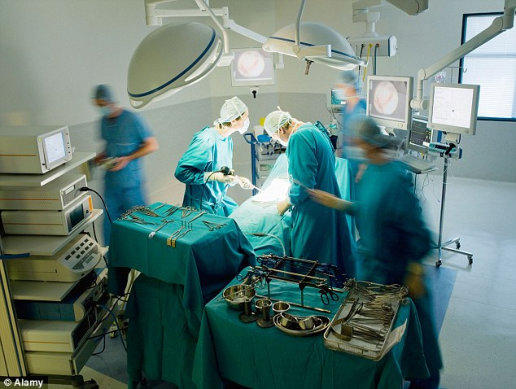

.





‘Knowledge is power’



World’s
encyclopedic
knowledge
compacted
in
your
hand





Scientists conducted study of those who suffered cardiac arrests
Nearly 40% of those who survived described 'awareness' during time
when they were clinically dead before their hearts were restarte
One man recalled leaving his body and watching his own resuscitation
Consciousness may continue even after death, scientists now believe.
Research into 'near-death' experiences has revealed that awareness and the mind may continue to
exist after the brain has ceased to function and the body is clinically dead.
Scientists at the University of Southampton conducted a four-year study of more than 2,000 patients
who had suffered cardiac arrests.
The research spanned cases at 15 hospitals in the UK, U.S. and Austria.
The findings revealed nearly 40 per cent of those who survived described some kind of 'awareness'
during the time when they were clinically dead before their hearts were restarted.
Dr Sam Parnia, a former Southampton University research fellow now based at the State University of
New York, who led the study, said: 'The evidence thus far suggests that in the first few minutes after
death, consciousness is not annihilated.
'Whether it fades away afterwards, we do not know, but right after death, consciousness is not lost.'
The scientists heard one man recall leaving his body entirely, watching his resuscitation from the
corner of the room.
The 57-year-old social worker from Southampton was 'dead' for three minutes yet managed to recount
detailed actions of the nursing staff and the sound of the machines.
Dr Parnia said: 'We know the brain can't function when the heart has stopped beating.
'But in this case conscious awareness appears to have continued for up to three minutes into the
period when the heart wasn't beating, even though the brain typically shuts down within 20-30 seconds
after the brain has stopped.
'This is significant, since it has often been assumed that experiences in relation to death are likely
hallucinations or illusions, occurring either before the heart stops or after the heart has been
successfully restarted, but not an experience corresponding with ‘real’ events when the heart isn’t
beating.
'Furthermore, the detailed recollections of visual awareness in this case were consistent with verified
events.'
A total of 2,060 cardiac arrest patients were studied.
Of that number, 330 survived and 140 said that had been partly aware at the time of resuscitating.
NEXT



Please raise the vol to listen to the
lady airing awe @ the SINGLE author encyclopedia
You may also like:
Video: Ancient Hindu tech - India to Germany to USA (history channel)
Video: The Untold Story of Pakistani Hindu Refugees
A Hindu hell on earth: Families are torn apart trying to flee Pakistan
Anonymity of Internet chat can bring sadness to siblings
Empowering Book Newsletter






WOMEN’S POWER: ITS PAST, ITS PRESENT, ITS FUTURE: FEMOCRACY
WEB PAGES
OUR OFFERING
UPLOADED ITEMS
OUR EMAIL
kri200@womenspowerbook.org
QUESTION




















